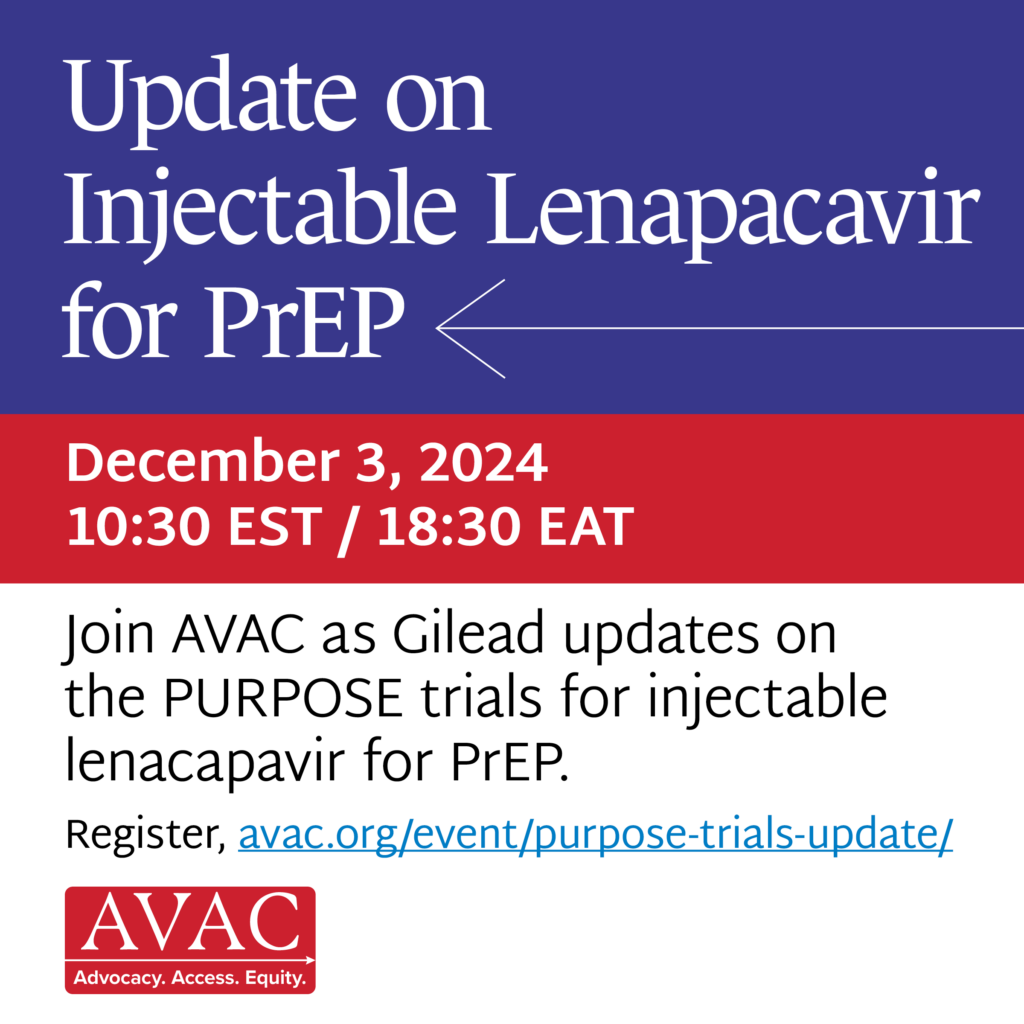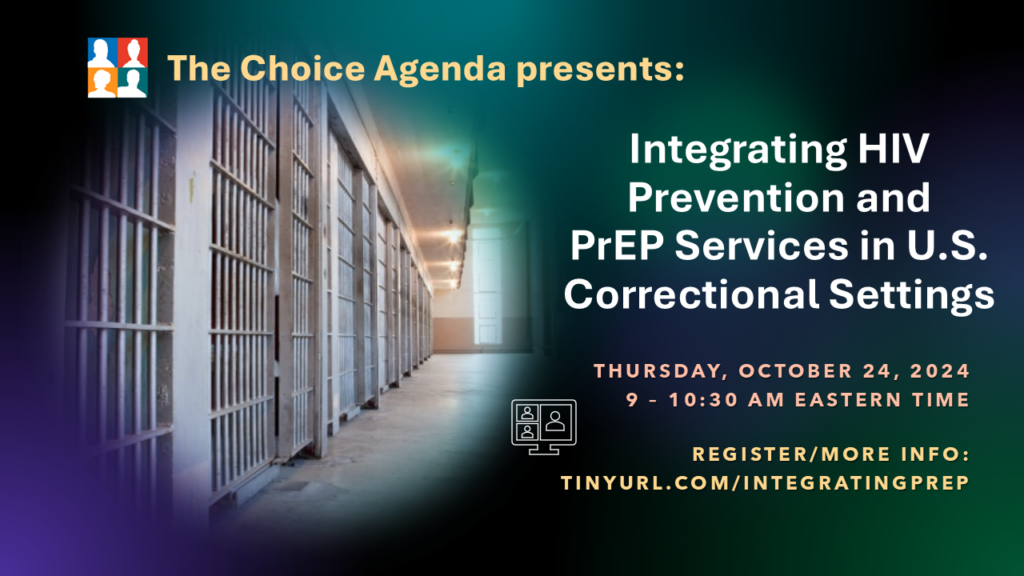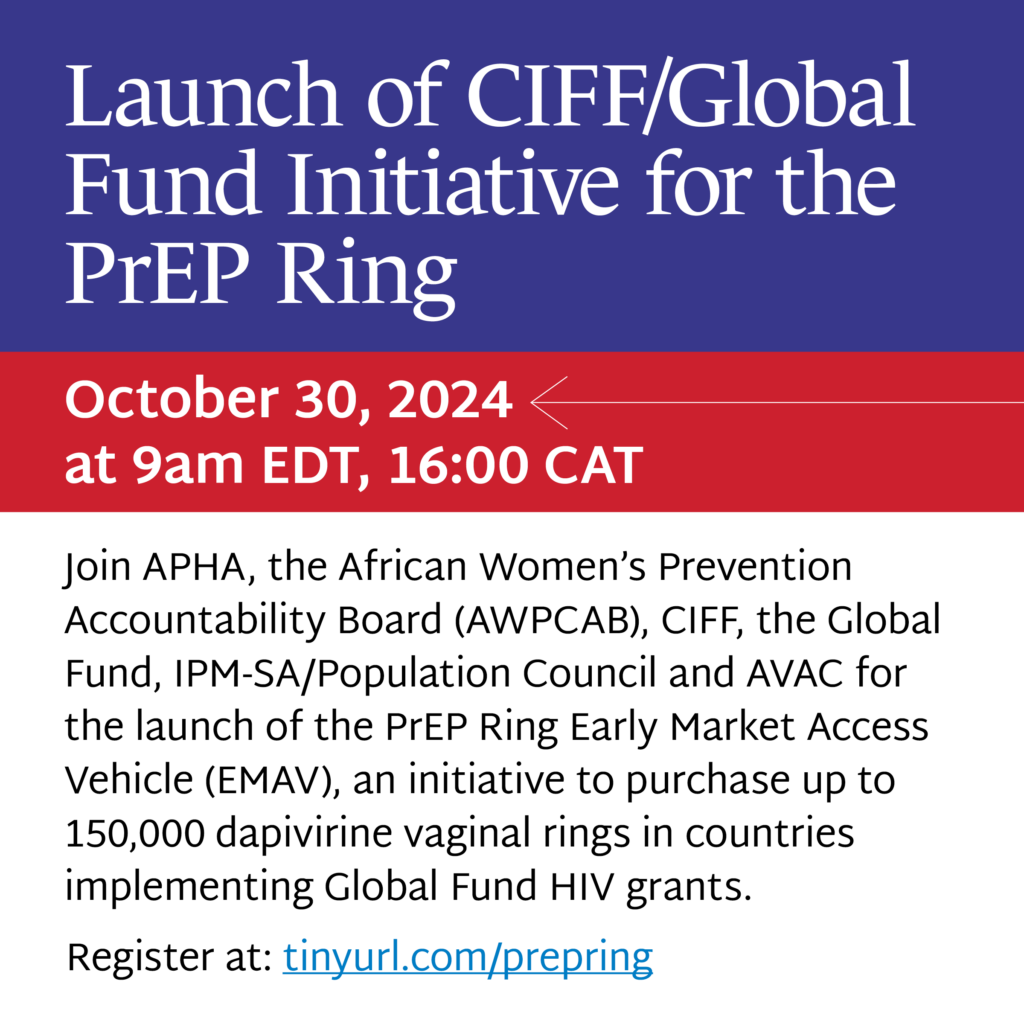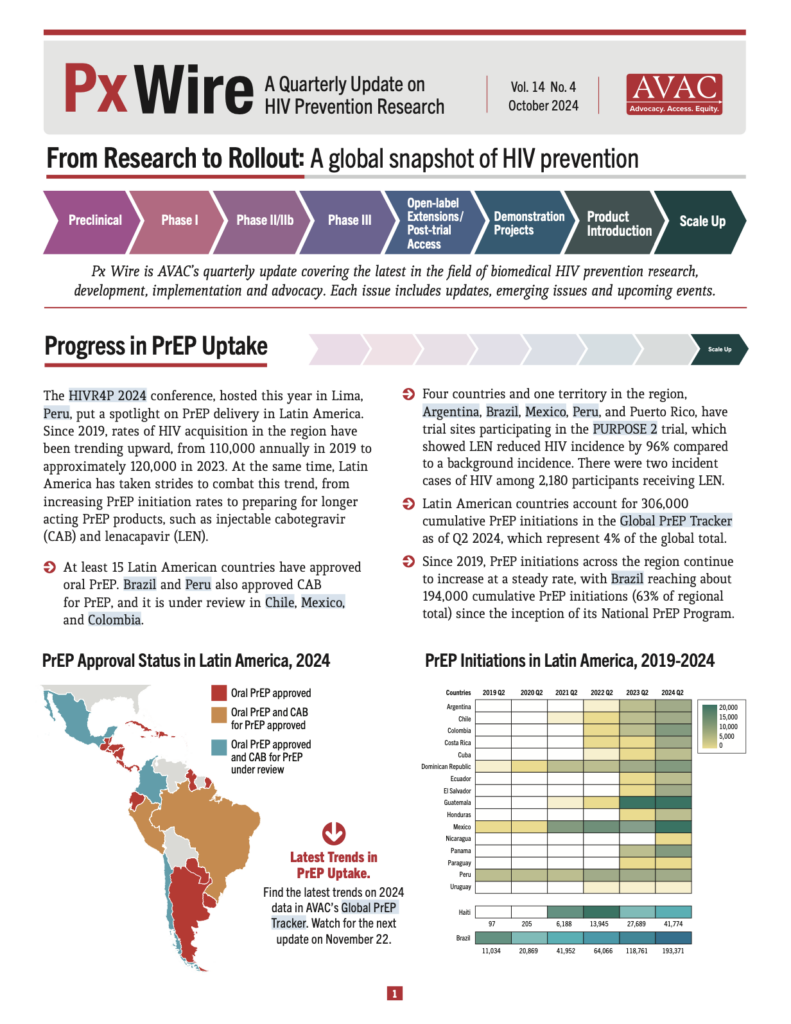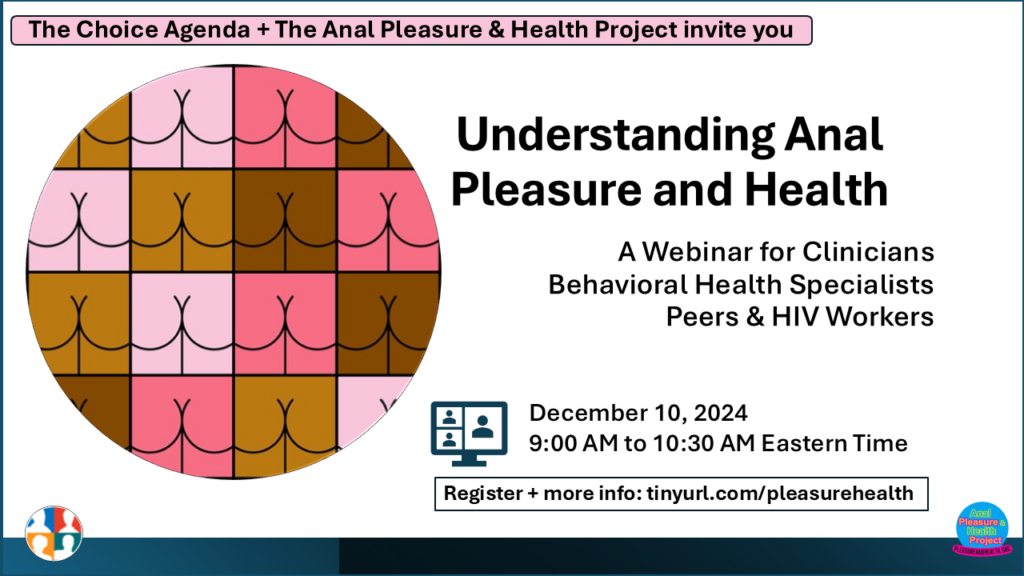As a new US presidential administration takes shape, our commitment to championing choice, science, and rights remains unwavering. This critical moment demands intentional strategies to protect progress in HIV prevention and global health equity while staying true to our mission and values.
Given the concerning rise of health misinformation on X (formerly Twitter), we must find new ways to share accurate, science-based information. Starting this week, we’ll begin to transition our presence to BlueSky, an open-source alternative to X, alongside Instagram and Facebook. Learn more about Blue Sky here and be sure to follow us.
Read on for the latest insights on CAB for PrEP and new resources on PrEP delivery, STI R&D, and the political challenges and the priorities in 2025 and beyond.
Trials to Impact: The Latest Insights on CAB for PrEPAn Advocate’s Guide to Research in Pregnant and Lactating Populations
The Biomedical Prevention Implementation Collaborative (BioPIC) is leading an integrated and adaptable strategy to deliver new HIV prevention products, with a particular focus on longer-acting PrEP methods. The BioPIC’s Adaptable Product Introduction Framework, emphasizes the need to conduct early-stage activities alongside Phase III clinical trials, and conducts Think Tanks to pinpoint evidence gaps and share insights from modeling and implementation studies. This work is driving more effective, people-centered product delivery. Read more on recent CAB for PrEP insights and visit the Evidence Gap Tracker.
Resources on PrEP Delivery, STI R&D, and More!
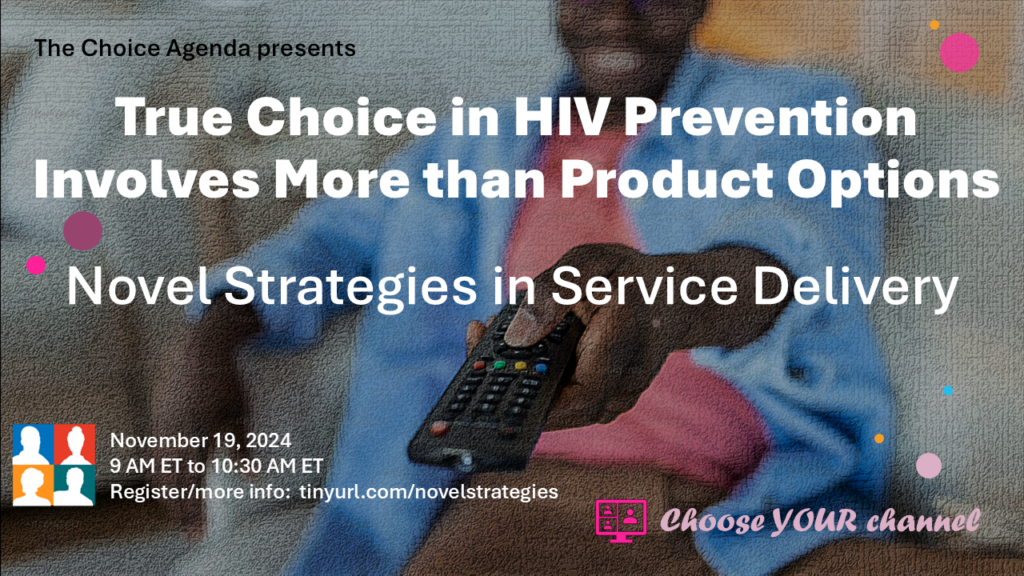
Video Recording and English Audio / Ukrainian Audio / Portuguese Audio / Spanish Audio / Slides / Resources
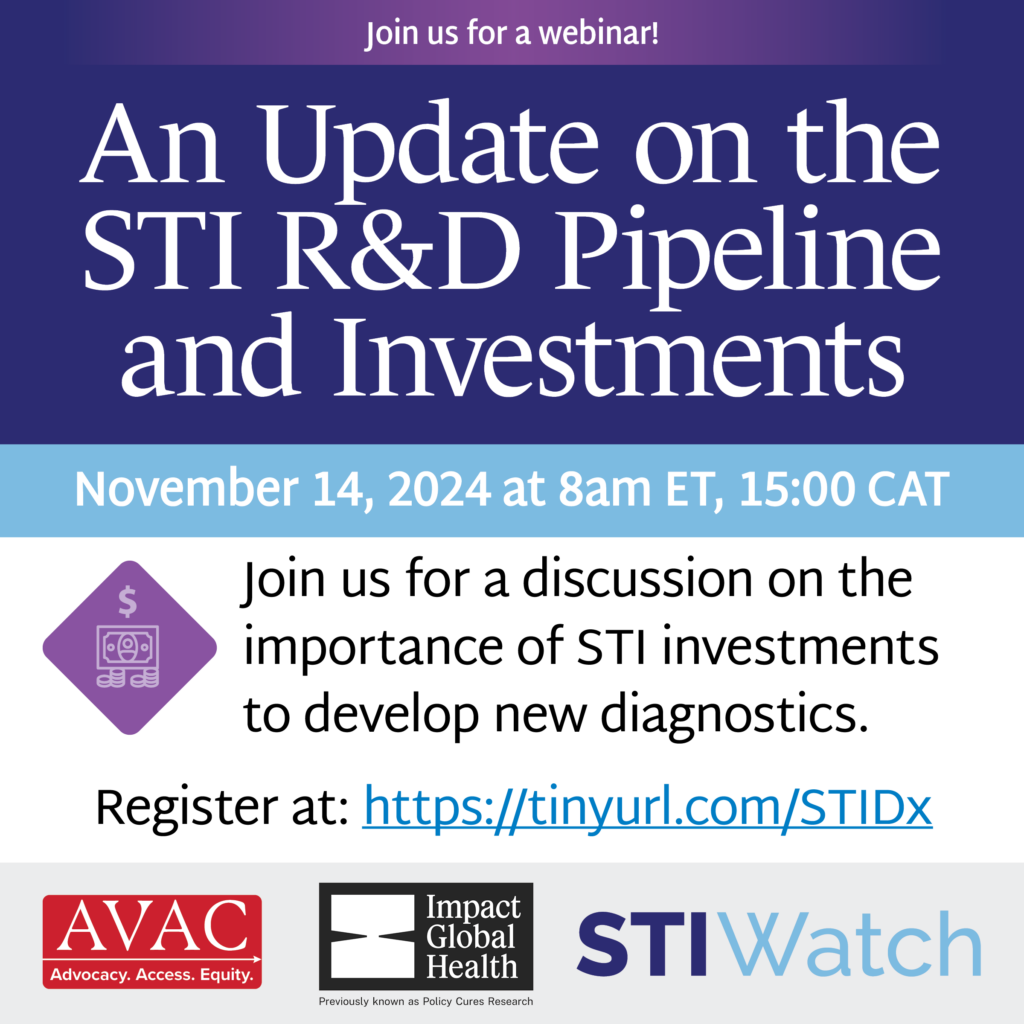
Recording / Alison Footman Slides / Mandisa Mdingi Slides / Cécile Ventola Slides / Birgitta Gleeson Slides
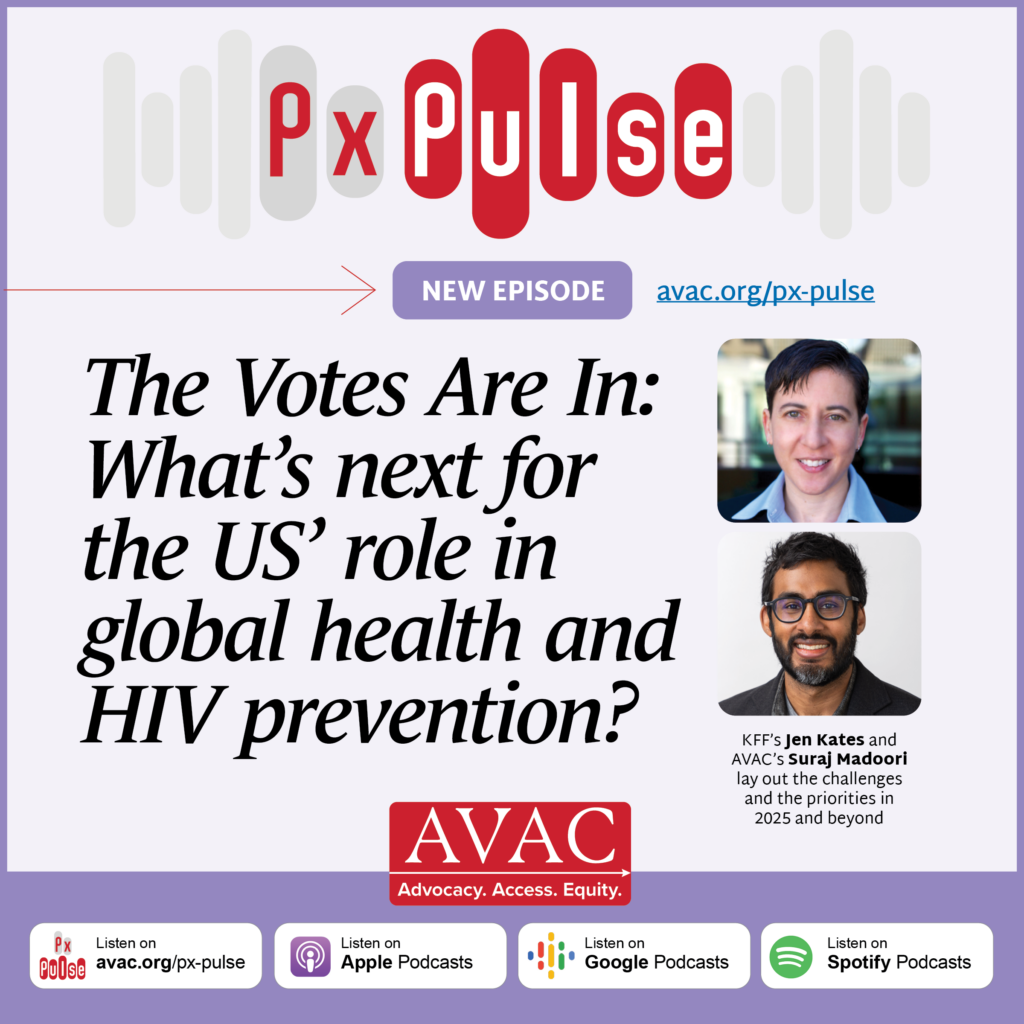
KFF’s Jen Kates and AVAC’s Suraj Madoori lay out the challenges and the priorities in 2025 and beyond.
In the days, months and years ahead under a new US Presidential Administration, advocacy for choice, freedom, science, and rights will require intentional strategies to protect hard fought gains in HIV treatment and prevention and in global health generally, and to safeguard policies and programs that advance it. And there will be major implications for the global AIDS response.
An Advocate’s Guide to Research in Pregnant and Lactating Populations
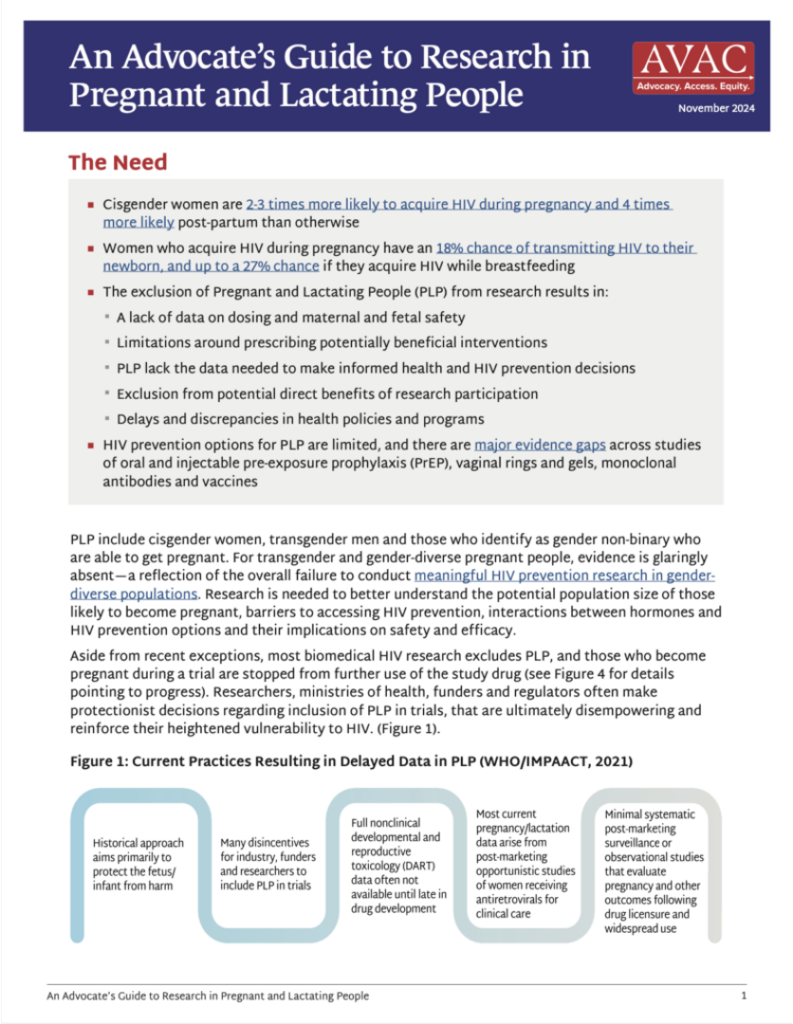
Check out our updated graphic in this advocates’ guide, which shares background on the need for research in pregnant and lactating populations and how advocates can advance inclusion.
